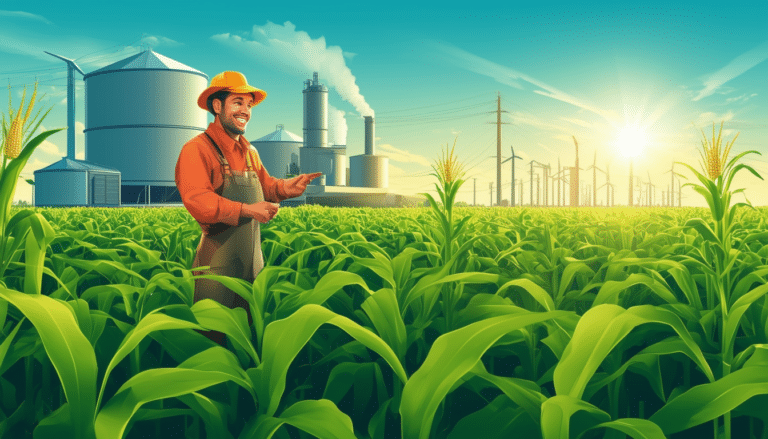The importance of education on responsible fuel consumption
The education about responsible fuel consumption is essential to face current environmental challenges and promote sustainable development. As the world faces climate change and resource scarcity, making informed decisions about efficient fuel use becomes essential. Awareness of the impact of our daily choices not only contributes to sustainability, but also improves the quality of life and well-being of future generations. Incorporating this education into society will allow us to cultivate a more responsible and participatory culture, where each of us becomes a key player in conserving our environment.
The importance of education on responsible fuel consumption
Responsible fuel consumption has become a crucial topic today, not only due to its economic implications but also because of its impact on the environment and public health. Education on the efficient use of energy resources is fundamental to fostering a society that is aware and active in its role within the global ecosystem. This article analyzes the main reasons that support the need for this education, providing practical tools and examples of good practices that contribute to a more sustainable future.
Awareness and social responsibility
Social awareness about responsible fuel use is a necessary first step. Education plays an essential role in informing the population about the negative effects that irresponsible use of fossil fuels can cause, such as increased pollution and climate change. Educational programs at different levels can raise community awareness about the importance of making more responsible energy consumption decisions.
Informed consumers for a sustainable future
Consumers who understand the relationship between their behavior and environmental impact are better equipped to make conscious choices. Education in the area of responsible fuel consumption not only focuses on reducing fuel use but also promotes the use of renewable energy. Learning about different energy sources and ways to be more efficient contributes to a significant reduction in ecological footprint.
Effective educational strategies
Implementing educational strategies that foster a change of habits is essential. These may include workshops, awareness campaigns, and the integration of curricula in schools that address topics such as fuel savings and energy efficiency. Community projects that involve families in sustainable practices can further strengthen environmental education within the population.
The role of technology
Technology plays a fundamental role in education about responsible fuel consumption. Digital tools, mobile applications, and online learning platforms can facilitate the dissemination of information on driving methods that minimize gasoline consumption, as well as offer tips for proper vehicle maintenance, which also impacts fuel efficiency.
Impact on public health and the environment
Educating about responsible fuel use is crucial for public health. The increase in pollutant emissions not only contributes to climate change but also affects the quality of the air we breathe, generating respiratory and cardiovascular problems in the population. Through proper training, it is possible to reduce emissions and move towards a healthier environment.
Public policies and sustainability
In addition to education, it is important that public policies align with the promotion of responsible fuel consumption. Regulations that incentivize the use of clean energy and energy efficiency across all sectors will contribute to education efforts by creating a favorable framework for adopting more responsible practices.
Community participation
Collaboration among citizens, businesses, and local administrations is vital. Fostering participation in sustainability initiatives ensures that education about responsible fuel consumption is a shared responsibility. Involving communities in activities that promote fuel savings and energy efficiency can generate a multiplying effect that amplifies results at the social level.
Examples of good practices
There are numerous examples of good practices in different parts of the world that clearly demonstrate the positive impact of education on responsible fuel consumption. Educational projects in schools, collaboration between NGOs and governments, as well as public campaigns that celebrate community achievements in energy savings, are just some of the ways to show that significant change is possible.
The importance of education on responsible fuel consumption
In a world where environmental and economic challenges are increasingly prominent, education on responsible fuel consumption becomes a crucial tool for achieving significant change. With rising concern about climate change and the need to adopt sustainable practices, understanding how and why we should optimize the use of energy resources becomes essential.
Through educational programs and awareness campaigns, it is possible to sensitize the population about the consequences of irresponsible consumption. Education allows us to acquire the necessary knowledge to make informed choices regarding fuel use, both in daily life and in professional settings. The fact that current generations take an active role in promoting conscious consumption is a positive step toward a more sustainable future.
Moreover, it is fundamental that education on responsible consumption is integrated into educational systems from an early age. By instilling a culture of energy efficiency and respect for the environment, a shift in mindset is promoted that can result in more responsible everyday practices. Habits formed through education have the potential to last throughout life, which means that a proactive approach from childhood can have a lasting impact on society as a whole.
It is important to remember that energy-efficient consumption not only benefits the environment but also contributes to cost reduction for individuals and businesses. By promoting greater efficiency in fuel use, it is possible to increase competitiveness and improve quality of life. Thus, education on responsible fuel consumption should not be seen as a luxury, but as an urgent and essential need to build a brighter and more sustainable future.




